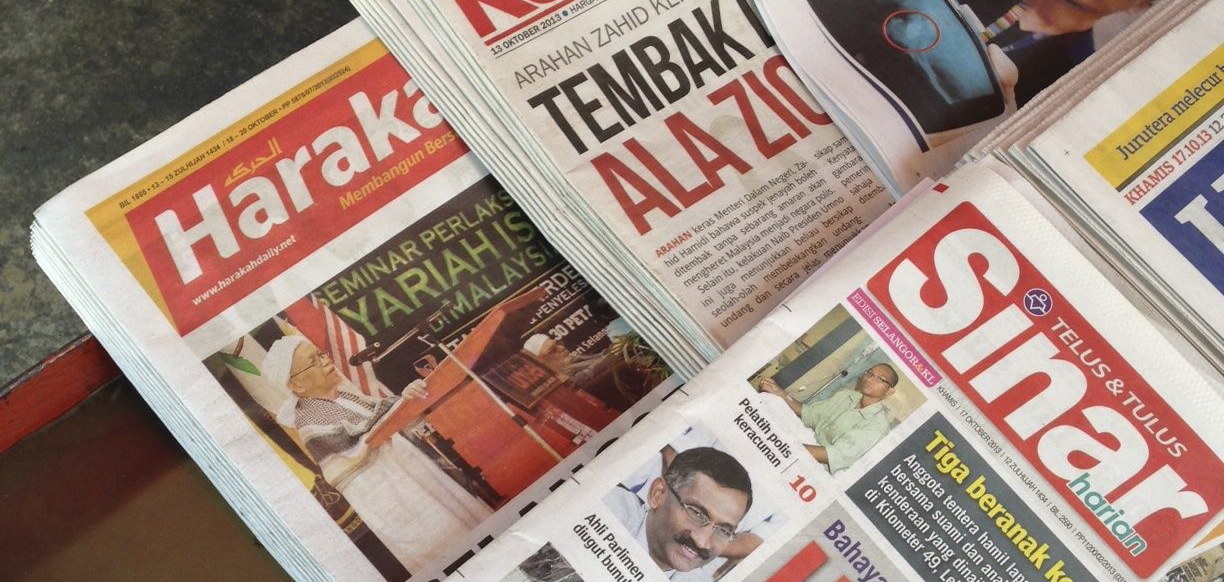Freedom of Expression in Malaysia at a Turning Point?

A high-profile defamation case against a popular online media publication suggests that journalistic freedoms are coming under increased government pressure, but the proceedings could yet result in a freer, more diverse media landscape.
Background
The Kuala Lumpur-based online publication Malaysiakini is facing a defamation lawsuit after years of publishing comments critical of the Malaysian Prime Minister, Najib Tun Razak, and his ruling party. Two recent articles in particular drew the ire of the Prime Minister. The articles contained comments by readers, selected and then republished by the online publication. The Prime Minister’s Office argues that the articles ‘made a slew of false and defamatory allegations against the Prime Minister’. The news portal has refused to remove the articles from the site and instead reminded Razak of his right of reply. The Prime Minister turned down the offer and has taken the legal route seeking an injunction to stop the media organisation publishing similar articles in the future.
Comment
Rights organisations see the lawsuit as a threat to freedoms of speech and the press. Amnesty International, Human Rights Watch and Reporters without Borders have called upon Prime Minister Razak to withdraw the lawsuit. These organisations have suggested that the lawsuit will stifle legitimate criticism and violate freedom of expression. The lawsuit could serve as a precedent against media sources critical of the government and make it difficult for them to continue to hold the government to account.
Online publications have largely been able to avoid the level of government oversight applied to the print media in Malaysia. For instance Malaysian law stipulates that all printed publications must hold a government-issued licence which can be withdrawn by the Minister for Home Affairs at any time. Online publications such as Malaysiakini are exempt from this regulation, but there have still been attempts to limit their influence. While the Malaysian Government claims that it does not censor the Internet, Malaysiakini and other independent online media sources reported that their websites were blocked in the lead-up to the 2011 Sarawak state election, preventing their readers from accessing their sites. The government has also utilised national security laws to prosecute critical bloggers. All of these circumstances suggest that freedom of expression is under challenge.
In a robust liberal democracy there will always be criticisms of government figures and government policy; citizens should be free to voice these opinions through whatever channels are available to them, including through comment pages.
The problem with republishing comments by readers is that they are of course not always factually accurate. In republishing such comments, Malaysiakini has a responsibility to check them for factual errors and to give a disclaimer that they are comments from readers and do not necessarily represent the views of the publication. Failing to do this leads to the potential for the comments to be associated with journalistic rigour, lending them a greater degree of legitimacy.
Razak had his chance to rectify the alleged inaccuracies in the comments by explaining why they were inaccurate. Only by contributing to a dialogue with the people through the media can Prime Minister Razak combat the ignorance that may lead to defamatory comments in the first place. By initiating legal proceedings against independent media outlets, the Prime Minister is preventing them from fulfilling their proper role.
Malaysiakini has had legal victories against government ministers in the past. In 2012 it won a case against the Home Minister for the right to a publishing permit which allowed it to distribute a daily newspaper. If the court sees the articles as simply the opinions of Malaysian citizens, not necessarily factually correct journalistic pieces, it is possible that Razak will lose the lawsuit. As the publication offered the Prime Minister his right of reply, the court may well rule in favour of the media.
The legal proceedings could thus become an important precedent in Malaysian law. If the court does rule in Malaysiakini’s favour, it would be a major victory for Malaysian journalism and free speech. It would undoubtedly lead to a more vibrant media landscape and facilitate greater dialogue between citizens and those elected to represent them.
Mervyn Piesse is a research assistant at the Indian Ocean Research Programme.
This article was originally published by Future Directions International. It is republished with permission.


